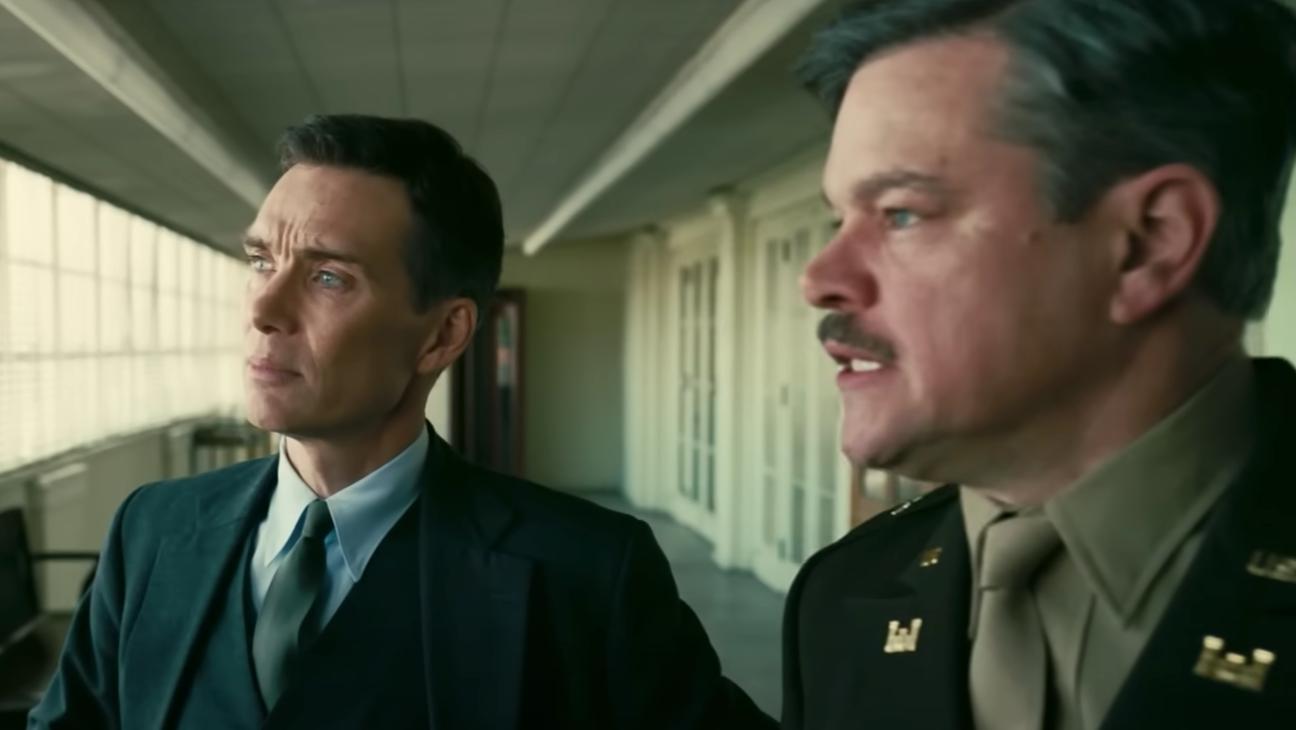
Oppenheimer leaves audience shook with intense acting, ending
Movie-goers have been ravenous for an original film, and Christopher Nolan’s Oppenheimer delivered with a massive impact.
In a sea of prequels, sequels, remakes, and ever-expanding universes, going to the movies has started to feel stale. The snappy dialogue and massive CGI fights are undeniably entertaining, but the films that accompany them are often generic and one-dimensional, with uninspired cinematography and an overall feeling of overproduction and no creativity.
Amidst a sea of Mission: Impossible, Insidious, and Indiana Jones — can you even keep track of how many movies exist in each franchise? — in came Oppenheimer to disrupt everything in its path.
Nolan is known for his massive undertakings like Dunkirk and Tenet, so movie fans were expecting something different. Every showing this opening weekend was packed. The atmosphere was electric as moviegoers whispered amongst themselves in anticipation for the three-hour-long film about Oppenheimer, the brilliant and troubled mind behind the atomic bomb.
At its core, Oppenheimer is a biopic about the life of Oppenheimer, starting with his troubled college years and ending with him leading the Manhattan Project, where the ultimate weapon of mass destruction was created. But Nolan doesn’t just go through his life in order like you’d expect.
It flashes back and forth between Oppenheimer fighting against the opposition while being interrogated and discredited to his early life as a student and professor. It’s jarring at first — the change from color to black and white, the quick flashes on the screen, the close-ups of people’s faces — and the pacing is questionable, but it gives way to something beautiful and worth the wait.

Powerful performances from Cillian Murphy and other stars blended with the incredible sound design and music score on top of the mesmerizing cinematography made this one of the most intense buildups in any film in history. Nolan even called it “kind of a horror movie,” and it’s easy to see why. The audience was on the edge of their seat as the team worked on the bomb. But it wasn’t only about the explosion — it was the building tension of Oppenheimer’s feelings surrounding the project and his involvement. His regret. His fear. His horror.
It builds up until the audience is met with a massive blast that’s necessary to watch in IMAX 70mm. The bright, eye-popping explosion with the terrifying rumbling is more horrific than any ghost movie showing just a few theaters down. You can feel Oppenheimer’s emotions spilling over without even seeing his face just yet.
But that’s not even it. While the audience is left sweating, fingers gripped around their popcorn buckets, Nolan brings them into a court-like setting where people attempt to discredit Oppenheimer and point out his communist views and Jewish roots. The sound of Ludwig Goransson’s orchestra builds up as the interrogation continues, the film now black and white.
Dread. Anguish. Fear. It’s palpable even when the movie is completely silent. You’ll need to watch the Barbie Movie right after if you don’t want the sound of the bomb — and the following silence — to shake you to your core for days to come.
Recommended

Can a VPN really lower your game ping? Myths vs. reality
Do you really need it?

MrBeast takes action on Ava controversy, responds to allegations
MrBeast has launched a private probe.








